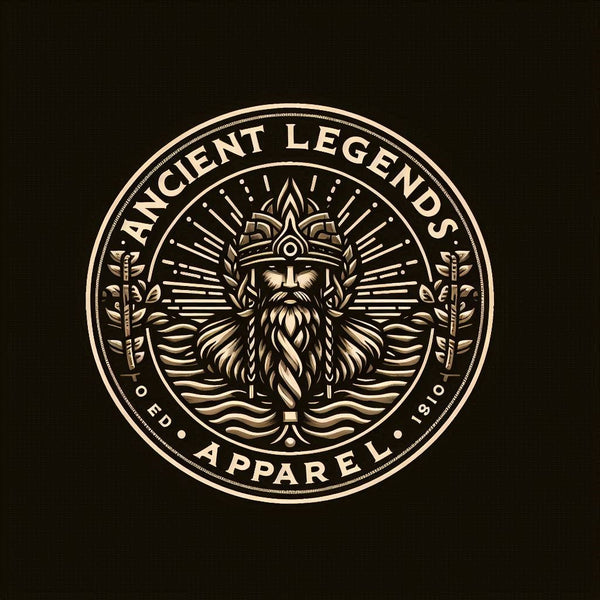Hidden Meanings in Stories of Ancient Prophecies
Karl FShare
INTRODUCTION
Whispered wisdom of the ancients, told under starlit skies and passed down through generations, prophetic tales continue to impact our modern psyche. They pulsate with riddles of destiny, predictable future events, and echoes of divine intervention. Ancient prophecies bring about enchanting narratives, interweaving the extraordinary with the everyday, reality with fantasy and truth with myth. Considering the profound meanings of these stories offers a unique door into the mindsets of the ancients, providing insight into their worldview, their belief systems, and the questions they pondered. Let us venture into the labyrinth of unending tales, mythologies, and prophecies, examining the connotations hidden beneath layers of parable.
ORIGIN AND CULTURAL CONTEXT
The earliest prophecies extend back to the earliest civilizations. The Sumerians, Egyptians, Mayans, and Chinese developed complex systems of divination and prophecy, accompanied by an intricate mythology to explain the prophetic process. In the ancient world, people believed the gods used prophets to send messages to guide humanity and foretell future events. Symbolism was abundant, with divine beings like the Oracle at Delphi, or the biblical Prophets being individuals who were perceived to have a direct line to the gods. Interpretations ranged from spiritual wisdom to dire warnings, set through religious ceremonies, dreams, and prophetic visions. A prophecy could predict anything from the rise or downfall of great empires, cosmic events, natural disasters, or the birth of prophesied individuals.
THE LEGEND OR STORY
One of the most iconic prophecies comes from Greek mythology—the tale of Oedipus. Since his birth, it was predicted by the Oracle at Delphi that Oedipus would kill his father and wed his mother. To alter his destiny, his parents sent him away to be killed. However, fate intervened, Oedipus was saved, and unknowingly fulfilled the prophecy, showcasing a grave warning on the inevitability of fate. However, beneath the surface of this horrific tale, under the mask of incest and patricide, there are deeper implications.
INTERPRETATIONS AND SYMBOLISM
Interpreting Oedipus' tale requires the unraveling of the cultural context behind it. The prophecy inevitably being fulfilled highlights an ongoing theme in Greek mythology – human beings cannot escape their fates. Moreover, it signifies that every action has consequences, and the ignorance of impending doom can often lead to its manifestation. Oedipus, symbolic of humanity, was born with an inescapable destiny, showing that attempts to avoid fate may instead tragically pave a path towards it.
COMPARISONS IN OTHER CULTURES
Prophetic tales are not restricted to one culture or mythology. In Norse mythology, we find Ragnarok – a prophecy stating the destruction of the cosmos and its rebirth. The end would be marked by a gigantic battle, ensuing chaos, and the sinking of the world in water. From the death of gods to the rise of new ones, the prophecy speaks about cyclical nature of life and the universe.
In Babylonian mythology, the Epic of Gilgamesh predicts a cataclysmic flood destined to cleanse the world. At its core, the flood carries a deeply symbolic narrative around divine judgment, human moral failure, and redemption, themes reverberated in the biblical tale of Noah's Ark.
MODERN REFERENCES AND POP CULTURE
The prevalence of prophetic narratives has extended its tendrils into our modern world. From the prophesied One in The Matrix trilogy to the Boy-Who-Lived in J.K. Rowling's Harry Potter series, prophecies continue to permeate popular culture. Pop culture references invariably tap into our fears and hopes of the future, exploring themes for both the individual and society at large, and capitalizing on the human fascination with the future.
LEGACY AND LASTING MYSTERIES
The legacy of ancient prophecies transcends the limits of historical eras and continues to mesmerize us today. They beg questions about predestination and free will, humanity's place in the universe and whether we can alter our destiny. As we delve deeper into these preserved narratives, we encounter more mysteries. The archaeological finds of the Maya Calendar and its supposed doomsday prophecy still spark debates, along with Nostradamus's obscure quatrains allegedly predicting future events.
In summary, the hidden meanings of ancient prophecies are mystical, imparting lessons, exploring moral questions and encoding the societal norms of a culture. Understanding them not only offers valuable insight into our history but also paves the way for thoughtful introspection about our destiny and choices. The innate fascination for prophecies unravels the secrets buried within ancient tales and reiterates time and again that while we may not predict the future – we can certainly learn from it.
